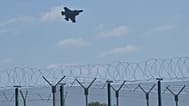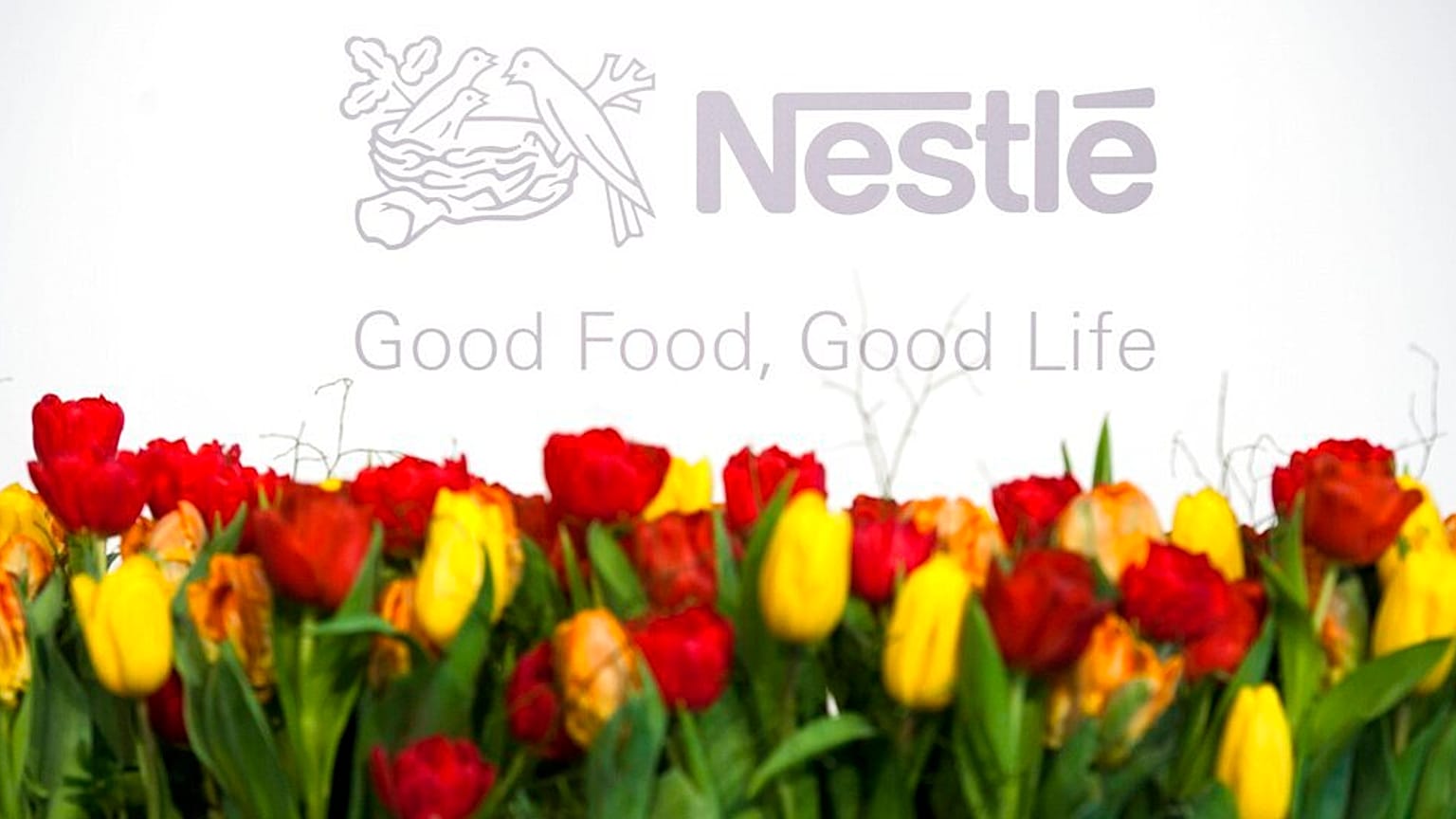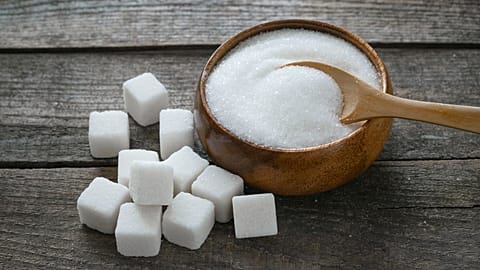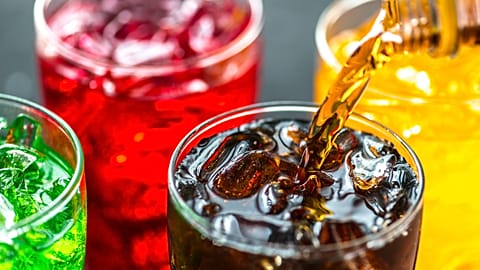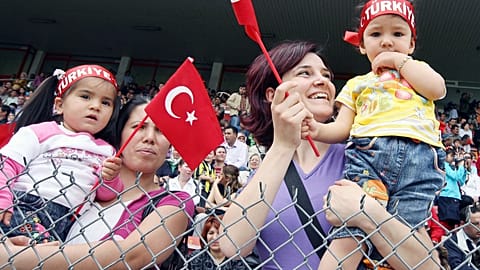A new investigation found that one portion of Nestlé cereal for six-months-old babies contained around a cube and a half of sugar per serving.
Nestlé’s baby food products sold in low and middle-income countries contain unhealthy levels of sugar, found an investigation by Swiss NGO Public Eye and the International Baby Food Action Network (IBFAN).
 ADVERTISEMENT
ADVERTISEMENT
 ADVERTISEMENT
ADVERTISEMENT
What’s more, while the food giant abides by marketing restrictions in Europe, it also “takes advantage of the weakness of existing regulations” in lower and mid-income countries, the probe found.
Researchers examined about 150 products and found in many cases that the same baby formula with no added sugar in Switzerland, Germany, France, and the UK, contained unhealthy levels of it in countries such as the Philippines, South Africa, and Thailand.
“There is a double standard here that can’t be justified,” said Nigel Rollins, a scientist at the World Health Organization (WHO), when authors presented him with the findings.
The risk of added sugars for babies
Nestlé controls 20 per cent of the baby formula market in the world, with the company’s head of nutrition, Thierry Philardeau declaring in 2020 that 15 million babies relied on its products. That’s nearly the population of the Netherlands.
The company’s wheat cereal Cerelac and its powder milk Nido are the number one brands in the world, with sales exceeding €2 billion in 2022, according to business intelligence company Euromonitor.
Authors found that one portion of Cerelac for six-months-old babies sold in Thailand contained 6g of sugar (the equivalent of a cube and a half of sugar per serving). In Germany and the UK, the same instant cereal had no added sugar at all.
While foods with natural sugar, such as fruits, are safe for infants and children according to the World Health Organization (WHO), added sugars are problematic as they can pave the way for obesity and noncommunicable diseases such as cardio-vascular disease - the leading cause of death in the world.
The UN agency has been calling for the industry to reduce “free sugars” since 2019 in foods of children aged 6 to 36 months.
The Public Eye report also highlights that the WHO “warns that exposure to sugar early in life can create a life-long preference for sugary products,” especially in the first two years of a child’s life.
‘Not all babies are equal’
Worldwide obesity has more than doubled since 1990. Within that same time frame, the percentage of obese children and adolescents has multiplied four-fold, reaching 8 per cent of 5-19 year-olds.
Once associated with high-income countries, obesity has now become an issue in low and middle-income countries.
“While these countries continue to deal with the problems of infectious diseases and undernutrition, they are also experiencing a rapid upsurge in noncommunicable disease risk factors such as obesity and overweight,” according to the WHO.
Countries, including in Europe, follow dietary guidelines recommended by the Codex Alimentarius, an intergovernmental organisation through which trade ministers determine a set of standards.
Although they are strongly criticised by the WHO and swayed by heavy lobbying, according to the authors behind the investigation, Nestlé’s products are compliant with Codex standards.
“The reason why European products don’t have added sugar, isn’t because there are tougher legislations,” Laurent Gaberell, Agriculture and Food Expert at Public Eye told Euronews Health.
“It’s because Nestlé decided not to add sugar in its baby food in European markets. The company knows what consumers here expect”.
Unethical marketing techniques
What’s more, the report raises further ethical concerns about Nestlé’s commercial practices. The investigation has found that in several countries, the multinational social media influencers to “win the trust of parents in its products”.
The company also uses networks of experts and health professionals to develop a “cradle-to-grave” loyalty among its consumers, according to Phillip Baker, a senior research fellow at the University of Sydney.
Meanwhile, the company is aware that sugar is bad for infants.
“It is not recommended to add sugar when preparing food for your baby, nor to offer sweetened drinks,” reads the company’s top 9 recommendation for babies on the French version of its parenting website Baby & Me.
“Breast milk is the ideal and natural food for every infant, and the WHO recommends exclusive breastfeeding up to the age of 6 months. Nestlé follows the principles of the WHO Code and therefore does not communicate on products intended for children under 6 months of age,” the French website’s homepage reads, referencing the UN agency’s ban on marketing of food for those under the age of six months.
But in other parts of the world, authors have found that Nestlé uses legal loopholes or weak implementation of the code to continue marketing baby formula targeting infants under the age of six months.
What’s next for baby formula?
Fifty years ago, the food giant was embroiled in another baby formula scandal known as the Baby Killer, which lead to the creation of the WHO International Code in 1981.
“The baby food industry stands accused of promoting their products in communities which cannot use them properly; of using advertising, sales girls dressed up in nurses uniforms, give away samples and free gift gimmicks that persuade mothers to give up breastfeeding,” the 1974 report states, echoing Public Eye’s current findings.
Reacting to the new investigation, Nestlé told Euronews Health that "slight variations in recipes across countries depend on several factors, including regulations, consumer trends, and availability of local ingredients."
The multinational added that cereals with and without added sugar are available in Europe, Asia, Latin America and North America.
Nestlé also highlighted that significant efforts have been made across its "entire portfolio" and that added sugars have been reduced by 11% in its infant cereals worldwide.
For Gaberell, that’s not an adequate excuse.
“They are capable of producing baby food without added sugars in Switzerland and Europe, and are doing pretty well financially, so why not do it in other parts of the world?” he said.
Gaberell also believes that Codex standards need to be aligned with WHO recommendations to homogenise added sugar levels in baby food worldwide.
The publication of the investigation has caught the attention of affected countries, with Indian authorities launching an investigation into Nestlé baby food.
The authors have also launched a petition demanding that Nestlé put an end to its double standards.

